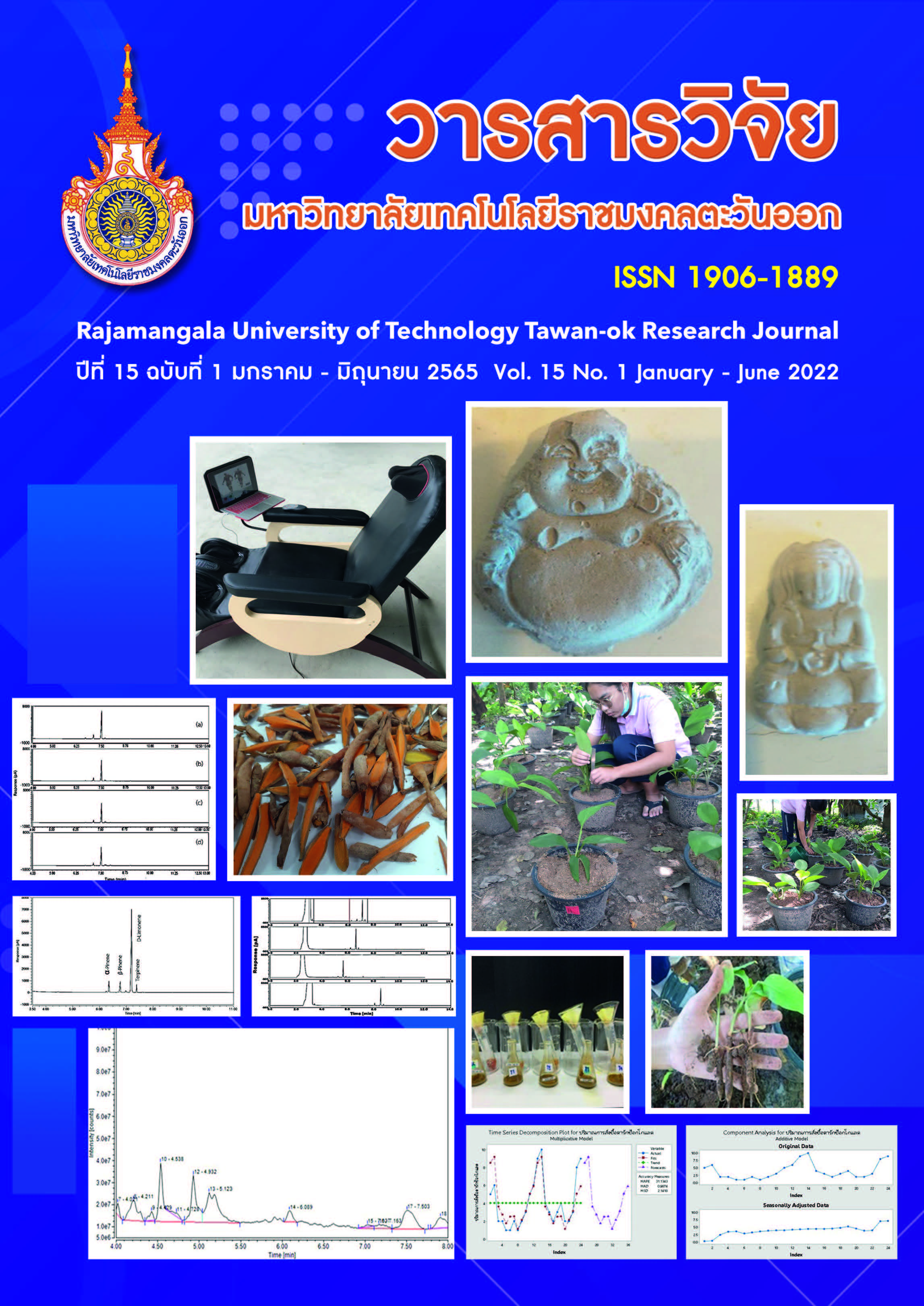Organophosphate and Carbamate Insecticides Residues Detected in Vegetables from Fresh Markets and Department Stores in Muang Chanthaburi District
Main Article Content
Abstract
The use of insecticides can increase agricultural productivity. However, excessive use of insecticides can lead to chemical residues in vegetables and fruits, including affecting the health of consumers. This research aims to determine organophosphate and carbamate pesticide residues in vegetables from the fresh market and department stores in Mueang Chanthaburi District. Ten vegetables (Chinese kale, Chinese cabbage, lettuce, spring onion, tomato, yardlong bean, peppermint, cucumber, bird chilli, and morning glory) in fresh markets and department stores were randomized in February to March 2021. The insecticides residues were examined by using the GT-Test Kit. The results found that the overall of 120 samples were tested, 32 samples (32.50%) were found the unsafe level of the insecticides residues, and 61 samples (50.83%) were found the insecticides residues in safe level, and the rest 20 samples (16.67%) were not detected any insecticides residues. The residues from fresh markets and the department stores were compared, it was found that the markets had a higher unsafe level of insecticides residues than those in department stores. The vegetables with the most unsafe levels of insecticides residues were bird chilli, followed by spring onions, cucumber and lettuce respectively.
Article Details

This work is licensed under a Creative Commons Attribution-NonCommercial-NoDerivatives 4.0 International License.
References
Isranews. 2016. Maximum pesticide residues in chili, Thai Pan indicated “Agriculture Ministry reforms the Q seal of the MSC.” https://www.isranews.org/content-page/item/46704- news_46704.html. Accessed 6 Dec. 2021. (in Thai)
National Bureau of Agricultural Commodity and Food Standards (TIS). 2016. Pesticide Residue : Maximum Residue Amount. https://www.acfs.go.th/standard/ download/MAXIMUM RESIDUE-LIMITS.pdf. Accessed 5 Dec. 2021. (in Thai)
National Health Security Office (NHSO). 2019. Pesticide Impacts. https://www.hfocus.org/content/ 2019/08/17468. Accessed 3 Dec. 2021. (in Thai)
Occupational Disease Department, Ministry of Public Health. 2010. Guide farmers disease-free for farmers and village health volunteers. Printing Agriculture Cooperatives of Thailand: Bangkok. (in Thai)
Phakakasama, P., Saisin, S. and Sutin, S. 2016. Detection of Organophosphate and Carbamate Pesticides Residues in Vegetables in Samutprakarn Province. Association of Private Higher Education Institutions of Thailand. 5(1): 22-29. (in Thai)
Poophalee, T., Wongwattanasatean, O., Apasrithonhsakul, S. and Supantee, M. 2016. Prevalence of pesticide residues in vegetables from the market. and department stores in Muang District, Maha Sarakham Province. Thai Journal of Pharmacy Practice. 8(2): 399-408. (in Thai)
Subbamre, R. 2014. Pesticides and Health Effects. Bangkok: Odeon Store.
Thai-PAN. 2016. Painful truth problem of pesticide residues in fruits and vegetables in 2016. https://thaipan.org/highlights/570. Accessed 2 Dec. 2021. (in Thai)
ThaiPBS News. 2019. The results of the pesticide residue test “Vegetables - Fruits” year 2019 exceeded the standard 41 percent. https://news.thaipbs.or.th/content/281193. Accessed 2 Dec. 2021. (in Thai)
ThaiPublica. 2019. “Thai-PAN” opens results of pesticide residues in vegetables and fruits in 2019, indicating that 41.3% is still above the “Orange - Cantonese” standard, the most, raising questions from the government How are banned chemicals still found? https:// thaipublica.org/2019/06/thai-pan-26-6-2562/. Accessed 2 Dec. 2021. (in Thai)
Thoophom, K. 1998. Handbook of GT-Test Kit for Residues of Pesticides. Bangkok: Division of Food, Department of Medical Sciences, Ministry of Public Health. (in Thai)


